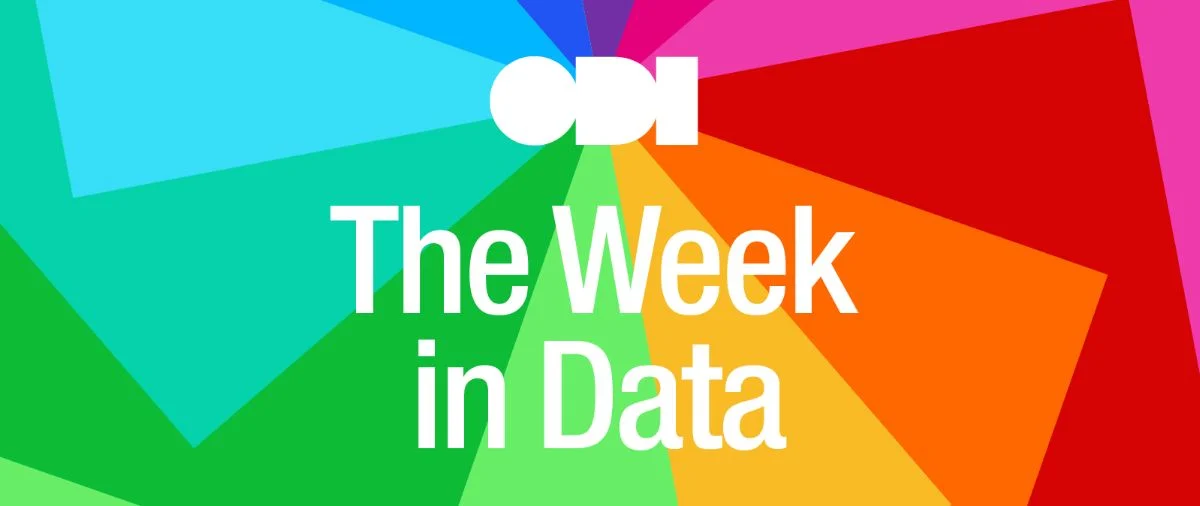
Hello, is it me you're looking for?
This week Google won its case at the top EU court to stop the ‘right to be forgotten’ being applied outside Europe, ie remove links from its search results in Europe, but not globally. Also known as ‘right to erasure’, its inclusion in GDPR deserves more than a little respect – but we do recognise that it’s tricky to strike a balance balance between privacy and the right to access information... Eye of the tiger, people.
Girl you know it’s true: the gender data gap negatively affects women in all areas of life, as highlighted in ‘Invisible Women’ by Caroline Criado Perez, announced as the winner of the Royal Society science book prize this week. What’s more, we’re really excited to announce that Caroline will be speaking at the ODI Summit in November. Not got your ticket yet? Come on Eileen! Getting into the groove on responsible letting, Airbnb is proposing that hosts in the UK are exposed to more scrutiny by being listed on a register of hosts to help prevent illegal short-term renting. The database, to be held by UK governmental bodies, would help authorities identify illegal use, particularly in relation to council properties being rented as holiday accommodation.
And time after time, we are trying to work out how our tainted love affair with sharing personal data can benefit society and consumers, not just big tech. In an opinion piece this week, author and computer scientist Jaron Lanier outlines why – as we’re living in a material world – he thinks people have a right to be paid for personal data. But we think that data should work for everyone, and our recent research around data rights found that people are challenging the idea of data ownership, instead citing control and transparency as key concerns.
Goodbye to you, Becky, Caley and Hannah ODI Production Team
From the outside world
‘Right to be forgotten’ to only apply to search results in Europe
BBC
The EU's top court has ruled that Google only has to apply the ‘right to be forgotten’ in Europe, and not globally. Under GDPR, individuals have the ‘right to be forgotten’ and members of the public can make a request to any organisation, who have one month to respond
Map of 16th century accused ‘witches’ in Scotland
The Scotsman
The University of Edinburgh has published a map about 16th and 17th century accused ‘witches’. It tells the story of the persecution of the women, showing the locations of their homes and where they were detained, punished and executed
Proposal to register Airbnb hosts to prevent illegal renting
Guardian
The Airbnb property rental platform this week began a consultation on proposals for a register of Airbnb hosts to help prevent illegal short-term renting and the use of council housing as holiday accommodation
Gender data gap exposé wins Royal Society science prize
Guardian
Caroline Criado Perez’s has won the Royal Society Science Book Prize for her exposé of the gender data gap. Invisible Women explores how everything from speech-recognition software and bulletproof vests, to medical tests and office temperature controls is designed with men in mind
Jaron Lanier says we can all earn money from personal data
New York Times
Lanier’s opinion piece for the New York Times outlines his vision for being paid for ‘your data’, stating: ‘your data is not just valuable – it’s the new oil’. His three-part opinion video outlines how a Mediator of Individual Data (MID) could be used as a mechanism to compensate people when companies makes use of personal data
From the ODI
Mood Pinball at the V&A
We presented Mood Pinball at the V&A’s digital design weekend. When playing the digital pinball game visitors were invited to experience the world of autistic artist (and Birmingham Open Media Fellow) Edie Jo Murray. Directing the ball, people travel around an urban environment, bumping into people and visiting locations
Sharing models between ‘digital twins’
There are great benefits in connecting ‘digital twins’, leading to increased efficiency, shared insights, saved time and reduced costs. Our Senior Data Technologist Fionntán O’Donnell explores how effective model documentation can help digital twins connect
How can a business gain value from data sharing?
Businesses can gain from sharing data – but it can be difficult to demonstrate this effectively. We are exploring the best way to illustrate how data sharing creates value – both in terms of boosting reputation and positively impacting the bottom line
From Opendatasoft
Sponsored content
From smart cities to smart enough cities
Opendatasoft interviewed Ben Green who studies the implementation and impacts of data science in local governments, with a focus on 'smart cities' and the criminal justice system. His book 'The Smart Enough City: Putting Technology in Its Place to Reclaim Our Urban Future' was published in April 2019 by MIT Press
Official invite to Data on Board, Paris
Opendatasoft invites you to attend Data on Board 2019 – a summit dedicated to the power of data sharing. Join organisations driving digital transformation in France and across the world for industry expert presentations, demos, and networking opportunities that capture the full power of data sharing
5 November – Paris, Station F (+350 attendees)